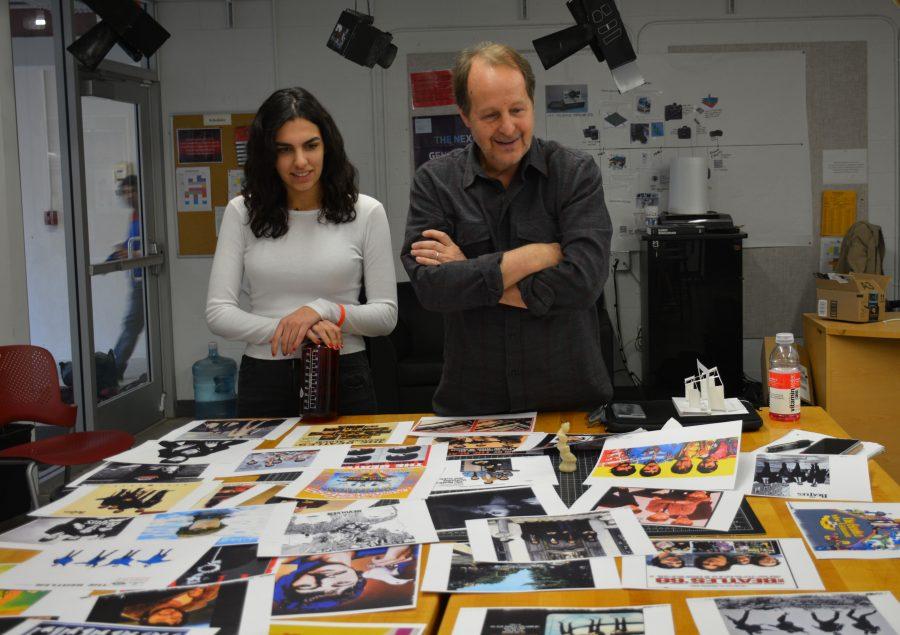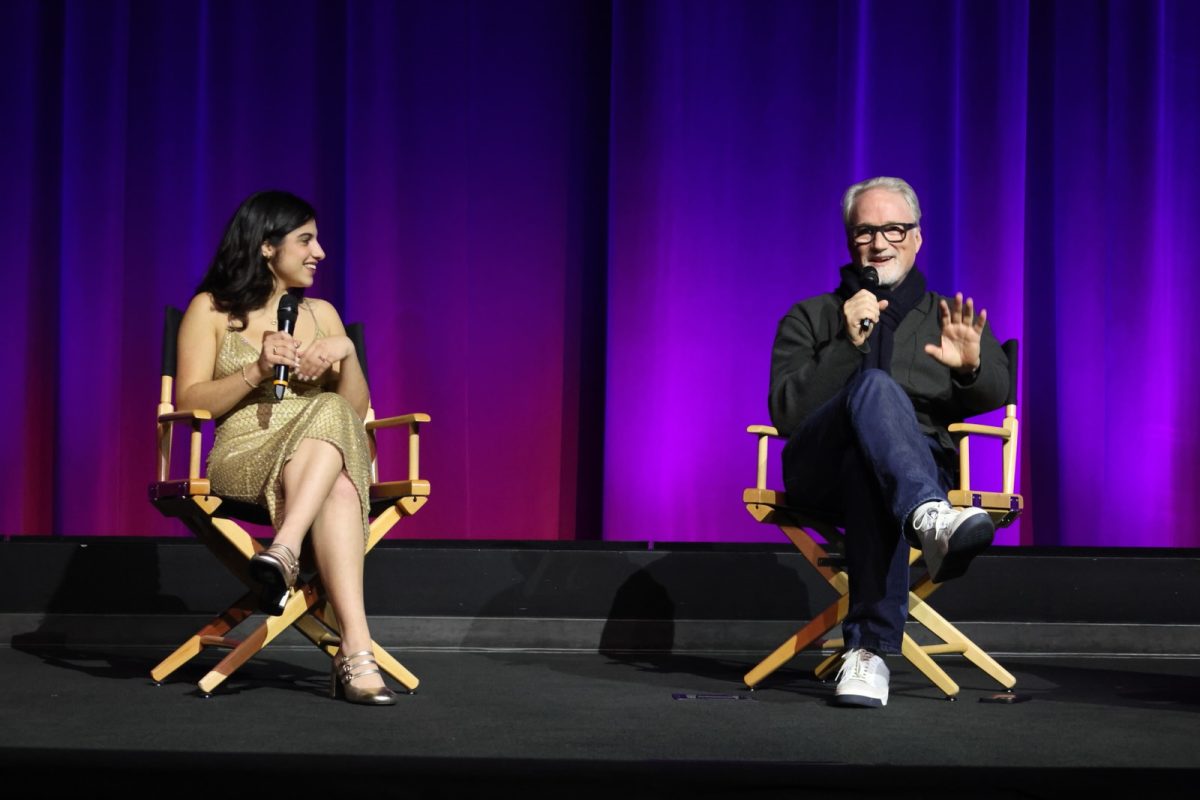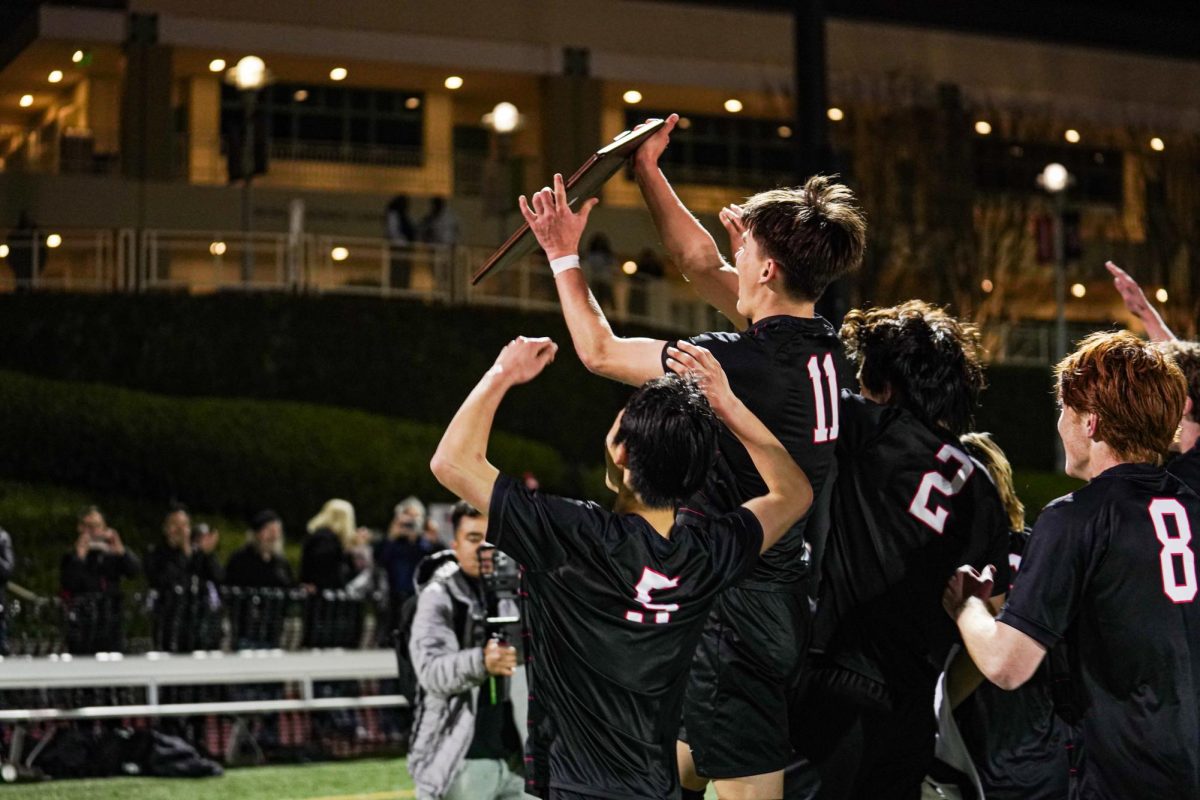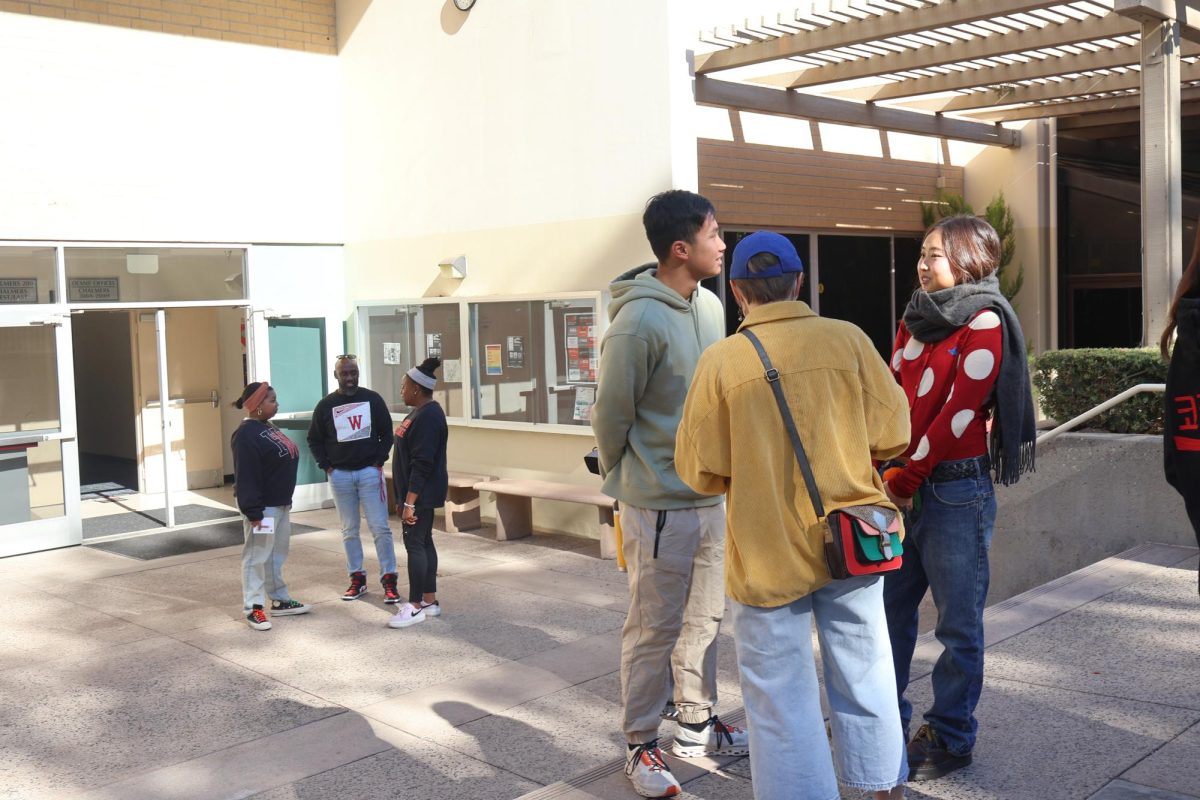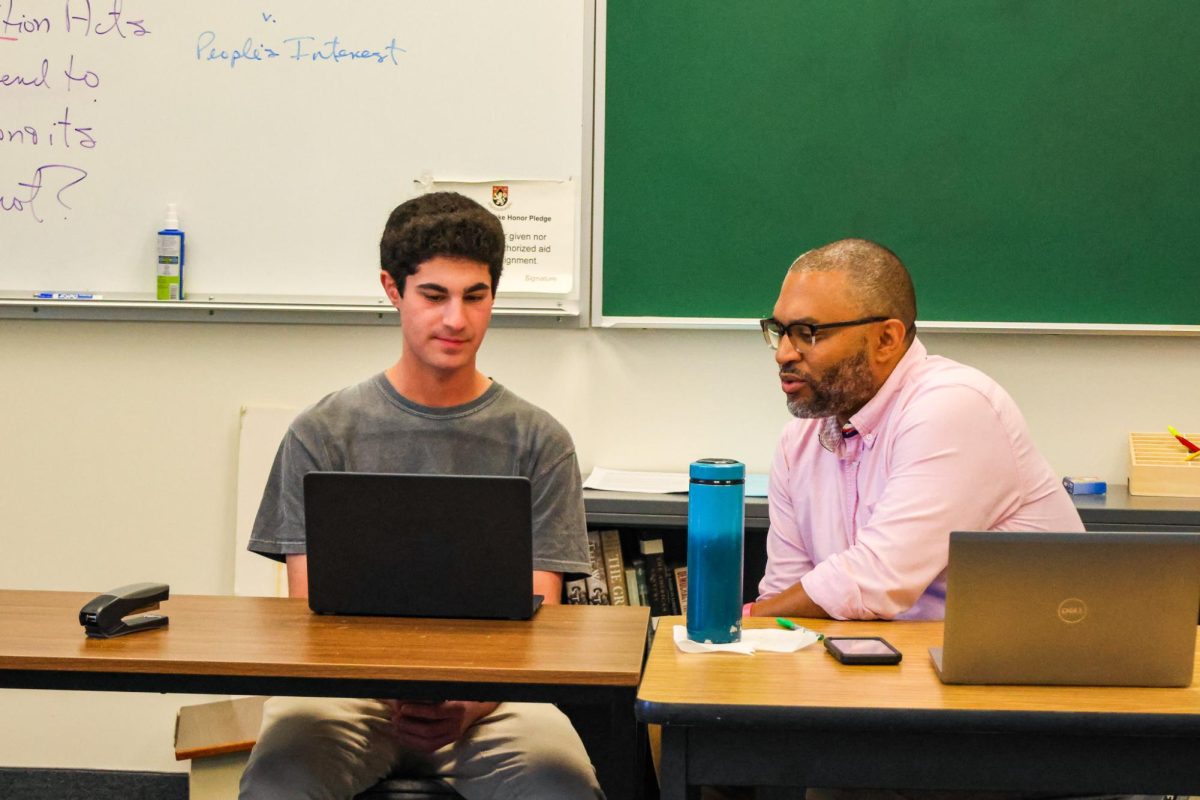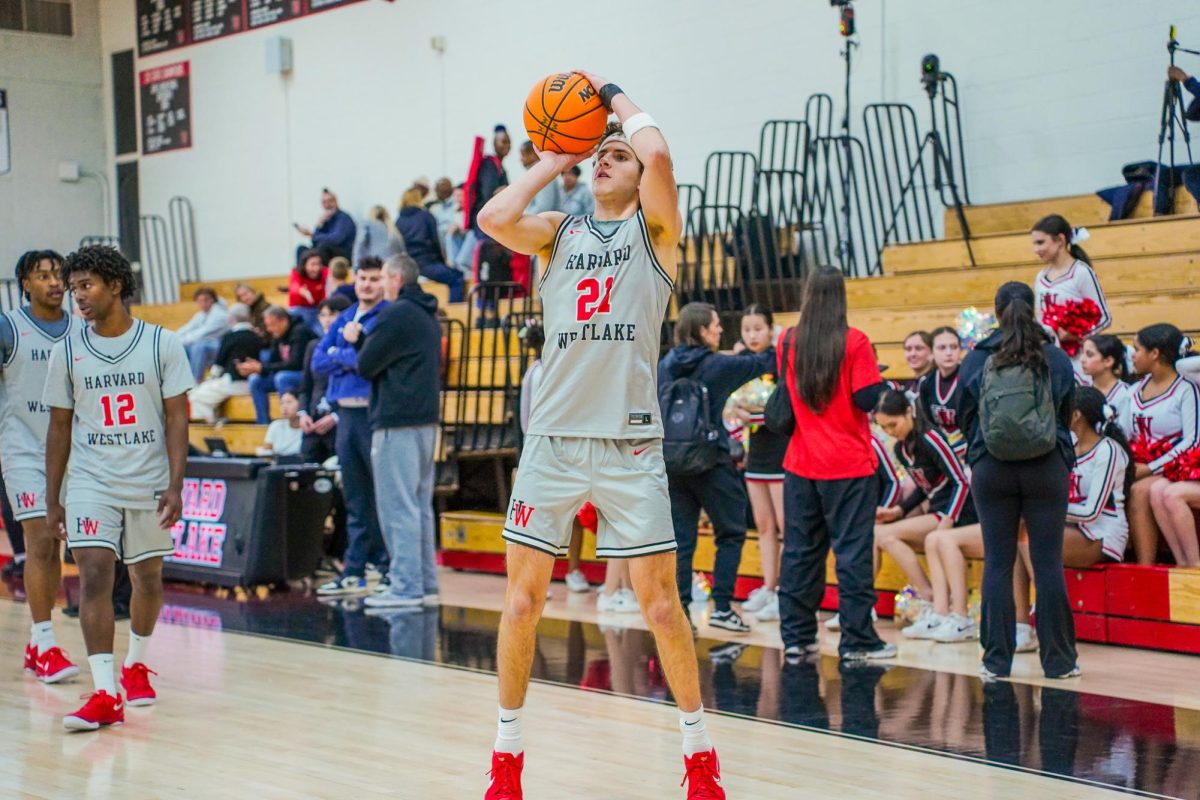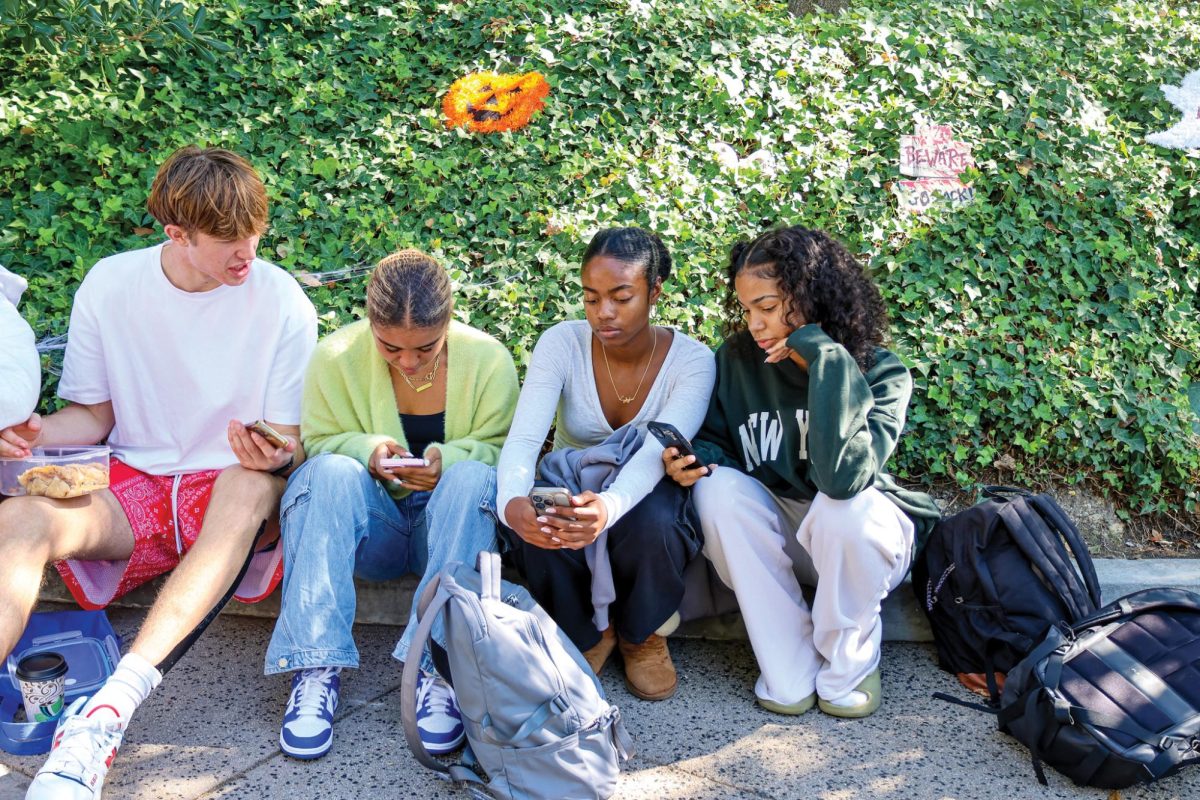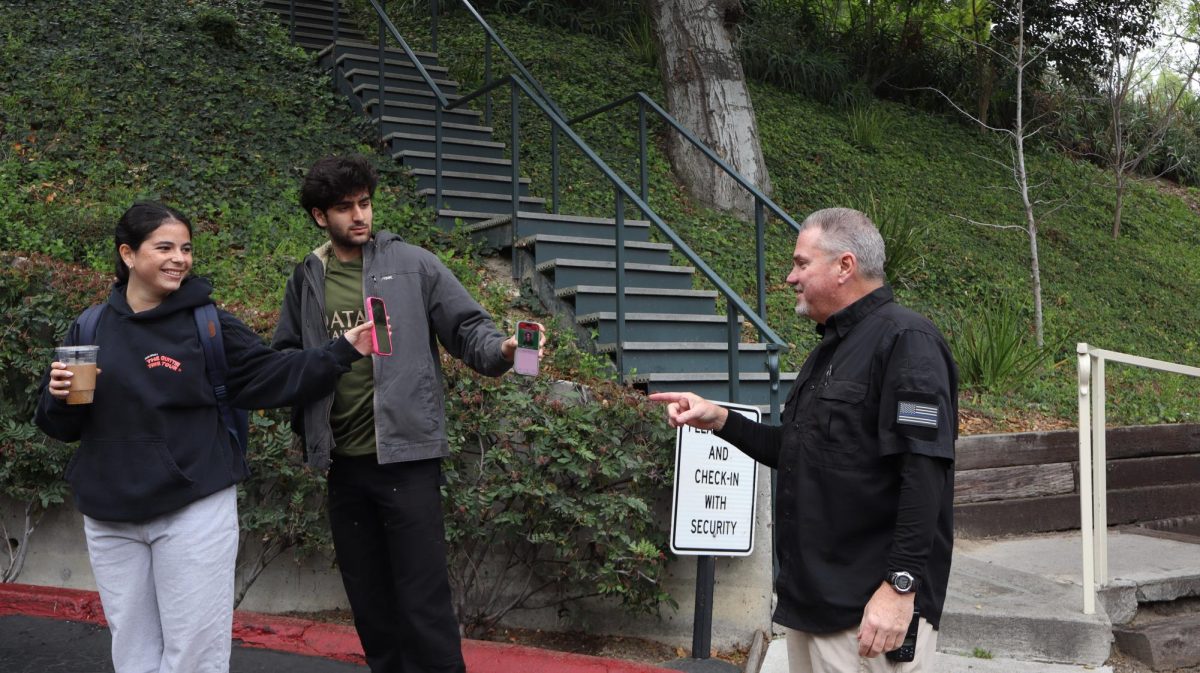Television and theater set designer Jim Fenhagen, who is building the set for the school’s production of “Our Town” visited several art, language and history classes last week to speak to students about his career.
Fenhagen said that his former mentor, performing arts teacher Ted Walch, asked him to come to the school and help with the set of the spring production.
The administration also wished for him to discuss his past works with students. He visited eight classes, including Photography II, Business of Life, French Literature and Arts Honors and AP Government and Politics: United States.
“It appeals to me because I like sharing what I’ve learned and what I’ve done with students,” Fenhagen said. “So I was very happy to speak with students, and it may be something that I do more of as I get further along. I do find it enjoyable. Sometimes you think, ‘What’s the next chapter? What would you do if you’re not doing as much of this?’”
Students said that they appreciated his presentation because they felt that they gained a new understanding about the field of set design, in addition to finding his previous projects interesting. When he visited visual arts teacher Kevin O’Malley’s photography classes, Fenhagen described the process of building the set of The Late Show with Stephen Colbert.
“When I watch TV, these are the type of things that I never think about,” Photography II student Whitney Elson ’19 said. “To see him tell us about all the research and the thought process that goes into producing these intricate sets, it was very impressive to me. Just like the trial and error and the compromise that is so essential to this field of work was really cool.”
Teachers also said they enjoyed Fenhagen’s lectures because he was able to include a variety of anecdotes with his lessons.
“[The students] really enjoyed it,” O’Malley said. “They liked his stories. He was laid back, he was sincere, he was funny and he’s very, very knowledgeable.”
Though the school does not offer a set design course, participants said they were inspired nonetheless by Fenhagen’s visit and work.
“You can communicate what it’s like to be a creative person in a world that might not appreciate creativity,” O’Malley said.





























